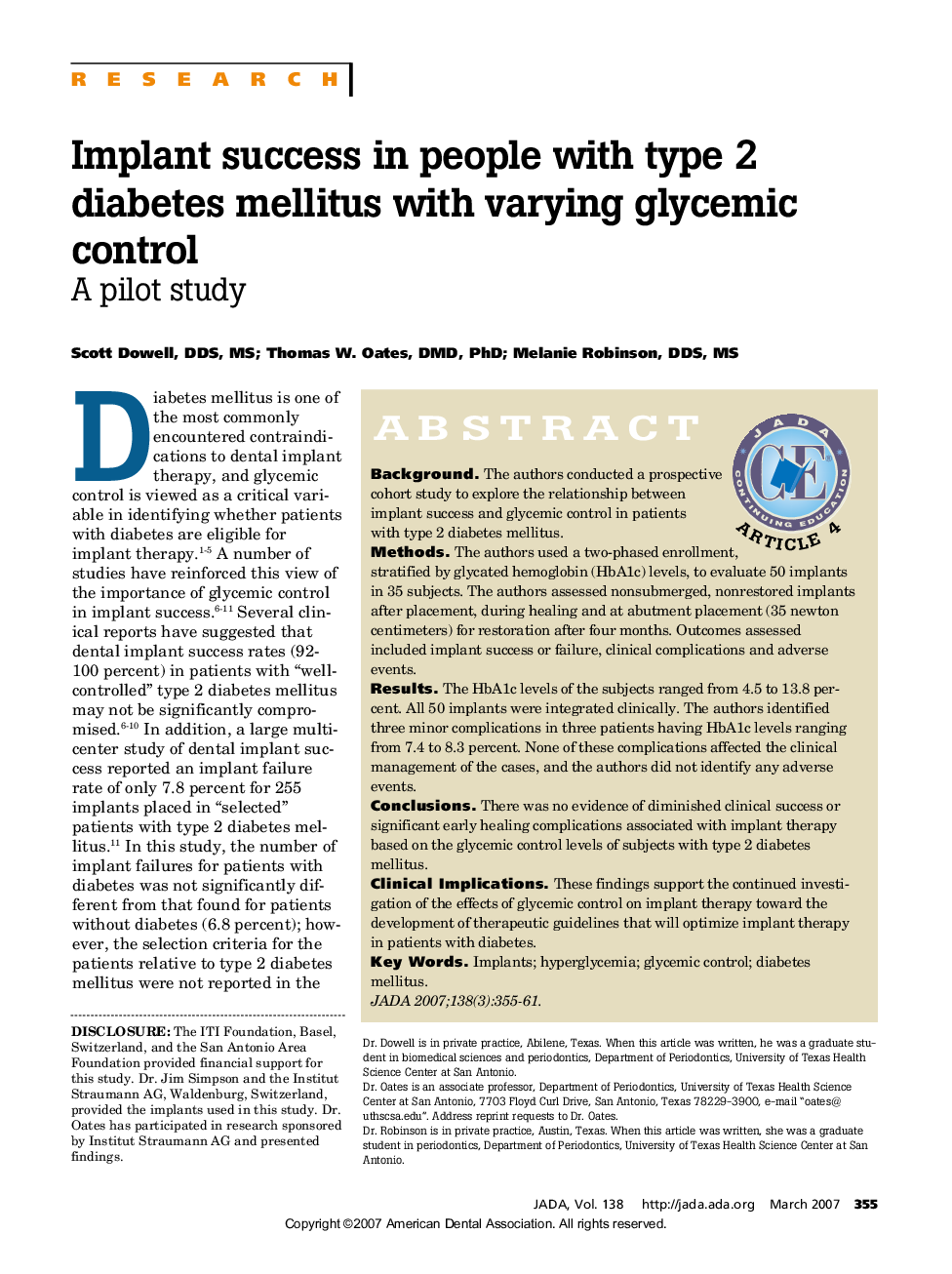| Article ID | Journal | Published Year | Pages | File Type |
|---|---|---|---|---|
| 3139803 | The Journal of the American Dental Association | 2007 | 7 Pages |
ABSTRACT BackgroundThe authors conducted a prospective cohort study to explore the relationship between implant success and glycemic control in patients with type 2 diabetes mellitus.MethodsThe authors used a two-phased enrollment, stratified by glycated hemoglobin (HbA1c) levels, to evaluate 50 implants in 35 subjects. The authors assessed nonsubmerged, nonrestored implants after placement, during healing and at abutment placement (35 newton centimeters) for restoration after four months. Outcomes assessed included implant success or failure, clinical complications and adverse events.ResultsThe HbA1c levels of the subjects ranged from 4.5 to 13.8 percent. All 50 implants were integrated clinically. The authors identified three minor complications in three patients having HbA1c levels ranging from 7.4 to 8.3 percent. None of these complications affected the clinical management of the cases, and the authors did not identify any adverse events.ConclusionsThere was no evidence of diminished clinical success or significant early healing complications associated with implant therapy based on the glycemic control levels of subjects with type 2 diabetes mellitus.Clinical ImplicationsThese findings support the continued investigation of the effects of glycemic control on implant therapy toward the development of therapeutic guidelines that will optimize implant therapy in patients with diabetes.
